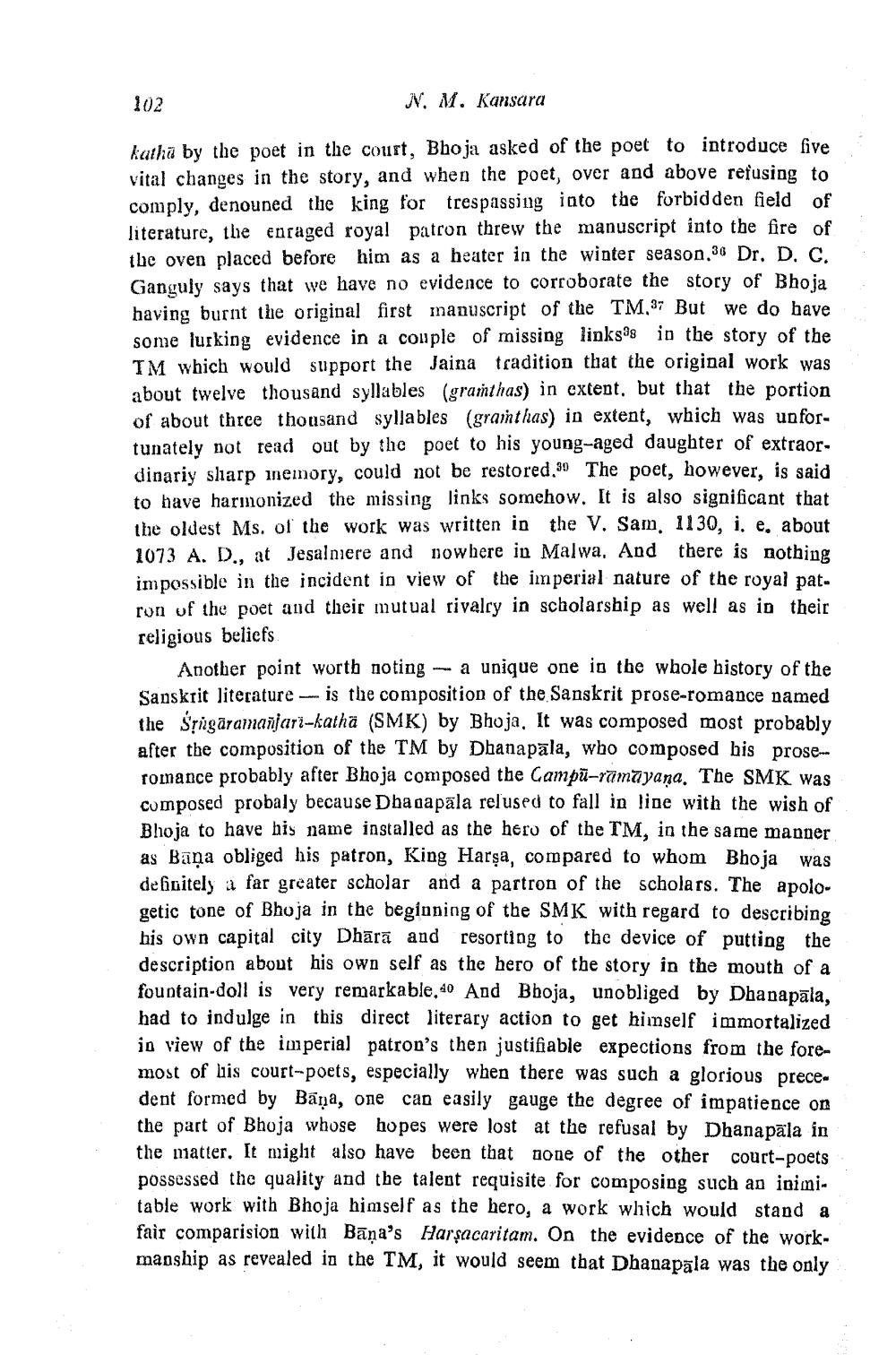________________
102
N. M. Kansara
katha by the poet in the court, Bhoja asked of the poet to introduce five vital changes in the story, and when the poet, over and above refusing to comply, denouned the king for trespassing into the forbidden field of literature, the enraged royal patron threw the manuscript into the fire of the oven placed before him as a heater in the winter season.36 Dr. D. C. Ganguly says that we have no evidence to corroborate the story of Bhoja having burnt the original first manuscript of the TM,37 But we do have some lurking evidence in a couple of missing links88 in the story of the TM which would support the Jaina tradition that the original work was about twelve thousand syllables (gramthas) in extent, but that the portion of about three thousand syllables (grainthas) in extent, which was unfortunately not read out by the poet to his young-aged daughter of extraordinariy sliarp nemory, could not be restored,39 The poet, however, is said to have harmonized the missing links somehow. It is also significant that the oldest Ms. of the work was written in the V. Sam. 1130, i, e, about 1073 A. D., at Jesalniere and nowhere in Malwa. And there is nothing impossible in the incident in view of the imperial nature of the royal patrun of the poet and their mutual rivalry in scholarship as well as in their religious beliefs
Another point worth noting - a unique one in the whole history of the Sapskrit literature --- is the composition of the Sanskrit prose-romance na the Srigāramañjari-katha (SMK) by Bhoja. It was composed most probably after the composition of the TM by Dhanapala, who composed his prose... romance probably after Bhoja composed the Campū-ramayana. The SMK was composed probaly because Dhadapala relused to fall in line with the wish of Bhoja to have his name installed as the hero of the TM, in the same manner as Bana obliged his patron, King Harsa, compared to whom Bhoja was definitely a far greater scholar and a partron of the scholars. The apologetic tone of Bhoja in the beginning of the SMK with regard to describing his own capital city Dhāra and resorting to the device of putting the description about his own self as the hero of the story in the mouth of a fountain-doll is very remarkable 40 And Bboja, unobliged by Dhanapāla, had to indulge in this direct literary action to get himself immortalized in view of the imperial patron's then justifiable expections from the foremost of his court-poets, especially when there was such a glorious precedent formed by Bana, one can easily gauge the degree of impatience on the part of Bhoja whose hopes were lost at the refusal by Dhanapala in the matter. It might also have been that none of the other court-poets possessed the quality and the talent requisite for composing such an inimitable work with Bhoja himself as the hero, a work which would stand a fair comparision with Bāņa's Harşacaritam. On the evidence of the workmanship as revealed in the TM, it would seem that Dhanapala was the only




